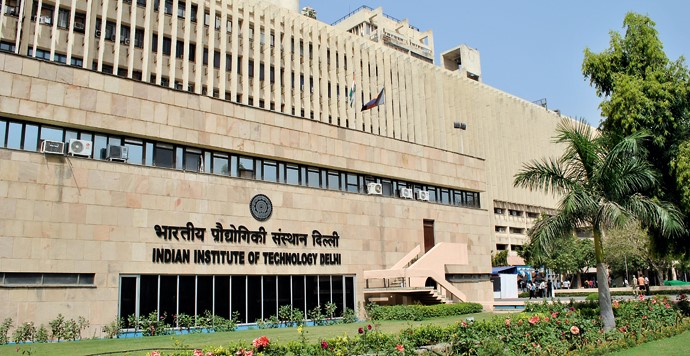IIT Delhi Overhauls Curriculum With Focus On Hands-On Learning
The revised UG curriculum focusses on flexibility, environment and sustainability, creative expression, ethical reasoning, and emerging trends in technology such as AI and ML
NEW DELHI: The Indian Institute of Technology (IIT), Delhi has revamped its curriculum after 12 years with concerns about burden on students and changing industry demands being among the major reasons behind the massive exercise, according to its Director Rangan Banerjee.
The main themes of the revised undergraduate curriculum are flexibility, a deep focus on hands-on learning, and, in line with the needs of the modern world, emphasis on environment and sustainability, creative expression, ethical reasoning, and emerging trends in technology (such as AI and machine learning).
In an interview to PTI, Banerjee said that the last curriculum revision was done in 2013.
“We have reviewed and revamped our curriculum to make our graduates future ready. The new curriculum has emerged after extensive stakeholders’ feedback and provides flexibility and hands on learning for our students,” he said.
The revised undergraduate programme is an outcomes-based, flexible curriculum that allows for choices in general engineering, basic sciences, and humanities courses. More opportunities for pursuing a minor degree or specialisation in a variety of areas have been introduced.
“The industry demands are rapidly changing… there is a whole new emergence of AI and focus on sustainability. The exercise for this revamp began in 2022. We have taken extensive feedback from stakeholders. The concern about burden on students was definitely one of the factors which guided our curriculum revamp,” he said.
The number of core credits per semester has been restricted and specially in the first two semesters when the first-year students join, they will have a relatively reduced load. Steps have been taken to ensure that the class sizes of the first year are smaller.
An honours programme has been introduced as an add-on to the BTech degree. An undergraduate student can now petition for an MTech degree in any available MTech programme at IIT Delhi at the end of their third year, allowing them to graduate with bachelor’s and master’s degrees in five years.
#IITDelhi Introduces Outcomes-Based Revised #UG, #PG and #PhD Curriculum
Flexibility, Hands on Learning, Emerging Trends and Sustainability Form the Basis of the #NewCurriculum
Read more- https://t.co/M5MnhZxzZe pic.twitter.com/WbpHhBBJiu
— IIT Delhi (@iitdelhi) May 27, 2025
Programming education has been introduced in the curriculum by integrating AI-based code generators into the introductory course on programming. Students from all BTech streams will have to undergo mandatory training on how to use AI responsibly and ethically.
“Each graduate will have some training in sustainability. We are providing more opportunities for hands-on learning, internships and teamwork, so that our graduates will be more future ready and will be able to actually make an impact in India and the world,” he said.
The 15-member curriculum revamp panel extensively studied the syllabus being taught at eight institutions —Stanford University, Massachusetts Institute of Technology (MIT), Cambridge University; Harvey Mudd College, California; Rose-Hulman Institute of Technology, Indiana; besides IIT Bombay, Gandhinagar and Hyderabad.
“The revised UG programme is an outcomes-based, flexible curriculum that allows for choices in general engineering, basic sciences, and humanities courses. Further opportunities for pursuing a minor degree or specialisation in a variety of areas have been incorporated,” Banerjee said.
The revised curriculum has a strong focus on hands-on learning. Modules related to environment, sustainability, creative expression, and ethical reasoning have been built into many courses to ready young engineers for current global challenges.
New courses
The institute is launching three new courses from 2025 academic session —BTech in Design, Bachelor of Science in Chemistry and MTech in photonics.
“The MTech-MS (Research) curriculum has a rationalised, outcomes-based programme structure, with an emphasis on industry connect and project-based learning. Two mandatory components – one capstone project emphasising problem-solving through teamwork and a summer internship emphasising external-connect in the new curriculum – will make our students more industry- ready,” Banerjee said.
“Flexibility is built into the revised curriculum, allowing students to explore courses outside their core academic unit. Flexibility to undertake the master’s thesis in an industry is also facilitated in various programmes,” he added.


Comments are closed.